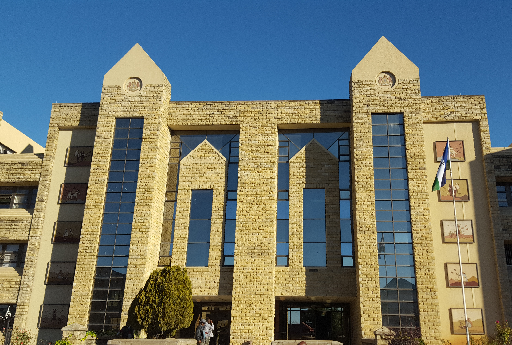Bereng Mpaki
Lesotho has regressed on its continental governance rankings over the past ten years, the 2022 Ibrahim Index of African Governance (IIAG) report has revealed.
Published yesterday, the index showed that Lesotho is ranked 17th out of 54 countries in 2021, far cry from the ninth ranking out of 52 countries it received in 2012.
Published since 2007, IIAG is a tool that measures and monitors governance performance in African countries over a 10- year period.
It provides a framework and dashboard for any interested audience to assess the delivery of public goods and services and public policy outcomes in African countries.
IIAG is produced by the Mo Ibrahim Foundation (MIF), an African foundation established in 2006 to focus on the critical importance of governance and leadership in Africa.
The foundation defines governance as the provision of political, social, economic, and environmental goods and services that every citizen has the right to expect from their state, and that a state has the responsibility to deliver to its citizens.
“While Lesotho’s overall governance score has deteriorated over the last decade (2012-2021), there has been no change to the score over the most recent five years (2017-2021),†the report said.
The IIAG indicators are organised under 16 sub-categories and four categories that make up the overall governance score.
They are security and rule of law; participation, rights and inclusion; foundations for economic opportunity; human development.
“Lesotho has deteriorated in 10 out of the 16 sub-categories since 2012. It has deteriorated in all sub-categories of the participation, rights and inclusion category.
“The category to have seen the most sub-categories improve is human development. Lesotho scores below the continental average for four sub-categories and is among the top ten for two of the 16 sub-categories in 2021.â€
However, there were positive signs as the index showed some improvements in human development in Lesotho as well as increasing improvement in foundations for economic opportunity.
“Lesotho has improved in two out of four categories since 2012, namely foundations for economic opportunity and human Development,†the report read.
Despite the improvement, Lesotho has badly deteriorated on security and rule of law, according to the report.
“However, Lesotho has deteriorated the most in security & rule of law, driven by decline in the sub-categories security & safety and accountability & transparency and anti-corruption.â€
The period under review by the report coincides with an era increased political tensions in Lesotho that led to the intervention of the South African Development Community (SADC).
In 2014 a coup d’état was reported to have been attempted against the then Prime Minister Thomas Motsoahae Thabane, which subsequently forced him to flee and seek refuge in South Africa.
Thabane’s administration later collapsed prematurely after conflicts with his coalition partners, leading to the February 2015 snap elections. The election ushered in Pakalitha Mosisili-led coalition government made of seven parties.
In June 2015 former Lesotho Defence Forces (LDF) army chief, Brigadier Maaparankoe Mahao, was assassinated by members of the army, leading to SADC launching a commission of inquiry into his death.
The Mosisili administration also failed to complete its five-year term and collapsed through a motion of no confidence in parliament in 2017.
Another snap election in June 2017 restored Thabane to power. But during his rule, army commander Khoantle Motšomotšo was gunned down.
“Lesotho received the highest possible score of 100.0 for three indicators. It received the lowest score of 0.0 for only one indicator. Lesotho improved in 37 out of the 81 indicators across the IIAG since 2012 and declined in 39. No change was registered in five indicators,†read the report.
The report further indicated that citizen’s perceptions on the security and rule of law has worsened since 2012.
“In Lesotho, citizens’ satisfaction with governance has deteriorated since 2012, with declines registered in three sub-sections. The biggest decline was registered in the Public Perception of Security & Rule of Law sub-section, with dissatisfaction growing in all indicators.â€
Commenting on the index, Mo Ibrahim, the founder and chair of the Mo Ibrahim Foundation said: “The 2022 Ibrahim Index of African Governance highlights that African governance has flat lined since 2019.
“Unless we quickly address this concerning trend, the years of progress we have witnessed could be lost, and Africa unable to reach in due time the SDGs or Agenda 2063.
“Our continent is uniquely exposed to the converging impacts of climate change, more recently Covid-19, and now the indirect impact of the Russia-Ukraine war. Governments must address all at once the ongoing lack of prospects for our growing youth, worsening food insecurity, lack of access to energy for almost half the continent’s population, heavier debt burden, and growing domestic unrest. Coups are back, and democratic backsliding spreading.â€
He said commitment to strengthen governance must be renewed if the continent is to retain the all progress it has achieved.
“The 2022 Ibrahim Index of African Governance highlights a stagnation of African governance since 2019, which should be a cause of concern for us all. We have come too far to let the disruptions of the last few years derail our ambitions and unless we quickly address this concerning trend, years of progress could be lost, and Africa might not be able to achieve the African Union’s Agenda 2063 or the UN Sustainable Development Goals.
“Our continent is uniquely exposed to the converging impacts of climate change, Covid-19, and the Russia-Ukraine war, which have exacerbated pre-existing challenges across the continent. Now, more than ever, Governments must focus on promoting strong institutions and good leadership, for this will be critical to not only navigate these crises but the challenges that lie ahead. Now is the time to strengthen our commitment to good governance. Failure to do so and we may lose much of what we have fought so hard to achieve,†Ibrahim said.




